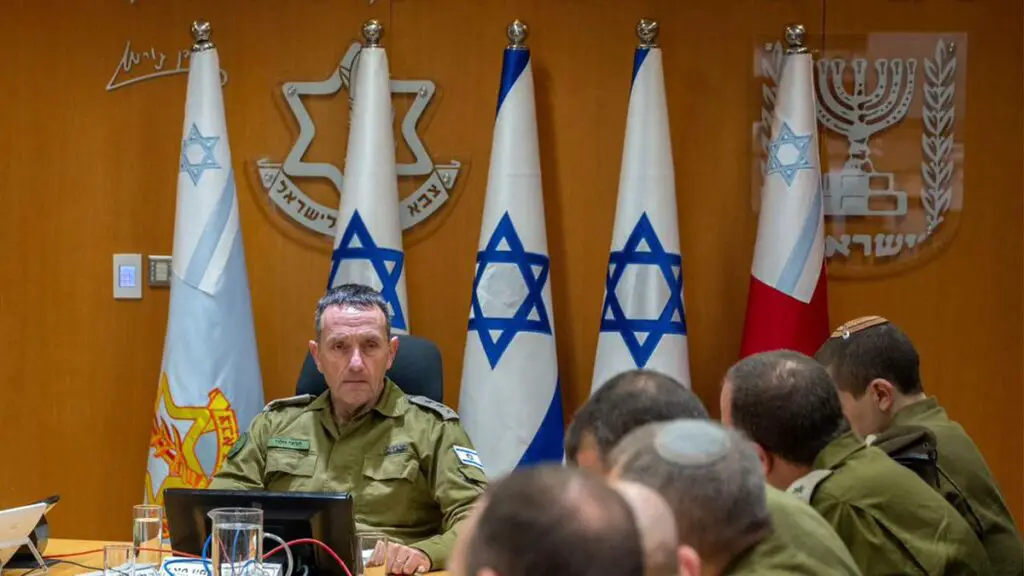In response to Iran’s weekend attack, Israel’s military chief stated on April 15 that the country would retaliate. World leaders are urging against retaliation to prevent a spiral of violence in the Middle East.
Iran’s Attack and Israel’s Response
The Iranian attack on April 13 was prompted by a suspected Israeli strike two weeks earlier on an Iranian consular building in Damascus, killing two Iranian generals. This marked the first direct military assault by Iran on Israel, despite decades of enmity dating back to the 1979 Islamic Revolution.
Iran launched a barrage of drones, ballistic missiles, and cruise missiles at Israel. The Israeli military reported intercepting 99% of these threats through its air defenses, warplanes, and in coordination with a U.S.-led coalition.
Israel’s Consideration and Preparation
Israeli military chief, Lt. Gen. Herzi Halevi, mentioned that Israel is assessing its next steps in response to the Iranian strike. The details of the retaliation plan have not been disclosed yet. Rear Adm. Daniel Hagari affirmed that Israel would respond at the chosen time.
Prime Minister Benjamin Netanyahu has been in discussions with top officials regarding potential responses. Despite hints of retaliation, the Israeli government is under tremendous international pressure to avoid escalating the conflict, given the minimal damage caused by the Iranian strike.
International Diplomatic Efforts
Various world leaders have advised Israel to show restraint and focus on a diplomatic response. The U.S., alongside partners like Britain and Jordan, emphasized the importance of avoiding escalation while protecting regional forces.
The U.S. has been working to strengthen ties between Israel and moderate Arab states to counter Iran. Efforts under the U.S. Central Command involve close collaborations with militaries across the region, fostering cooperation during times of crisis like the current situation.
Potential Ramifications and Regional Dynamics
An independent Israeli strike could strain existing collaborations, particularly with nations like Saudi Arabia that lack official diplomatic ties with Israel. It may also introduce new tensions with Iran, especially amid the ongoing conflict in Gaza against Hamas militants.
The Gaza war has heightened tensions between Israel and Iran, leading to skirmishes with Hezbollah in Lebanon and Iranian-backed militias in Iraq and Yemen. Concerns persist about a broader conflict involving Israel, Hezbollah, and Iran.
International Calls for Restraint
World leaders, including British Prime Minister Rishi Sunak and French President Emmanuel Macron, have urged Israel to exercise restraint to prevent escalating violence in the region. Amid these appeals, the U.S. reaffirmed its support for Israel’s security while prioritizing diplomatic efforts to counter Iran.
The U.S. Secretary of State emphasized the importance of balancing strength and wisdom in navigating the complex geopolitical dynamics at play.
For more information on the latest developments in the Middle East, visit [Related Website].
Stay updated on international relations by visiting [Related Website] for expert analysis and insights.


